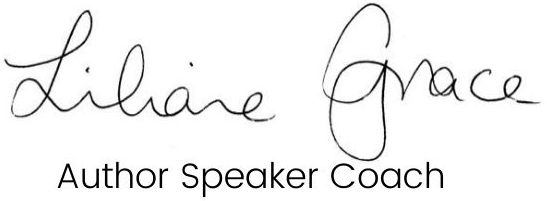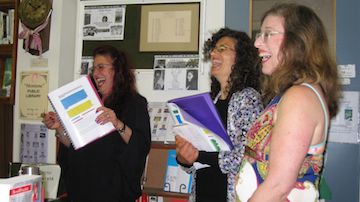 Last Saturday my two sisters and I shared stories about our childhood and the many books we read and how our mother’s childhood trauma affected our lives as part of a presentation at Mentone Public Library. We were all very big readers and my younger sister Anita remembers us sitting around the kitchen table engrossed in our library books while eating fresh peas out of the pod. Occasionally she would discover a worm, and then feel sick at the thought that she might have already eaten one…
Last Saturday my two sisters and I shared stories about our childhood and the many books we read and how our mother’s childhood trauma affected our lives as part of a presentation at Mentone Public Library. We were all very big readers and my younger sister Anita remembers us sitting around the kitchen table engrossed in our library books while eating fresh peas out of the pod. Occasionally she would discover a worm, and then feel sick at the thought that she might have already eaten one…
My older sister Yvette remembers us reading as we walked to and from our primary school.
She distinctly recalls the day that she was so caught up in her book that she walked slam-bang into a telegraph pole. Like most of us, she immediately looked around to see if anyone had noticed…
And then there’s the story of the Woodcutter in the Little Red Riding Hood fairy tale. Did you know that his role is to teach us the importance of listening to our body and intuition?
 My sister Anita is a psychotherapist and author of The Wolf In A Suit. She spoke for the first hour of our presentation about the importance of listening to our unconscious mind.
My sister Anita is a psychotherapist and author of The Wolf In A Suit. She spoke for the first hour of our presentation about the importance of listening to our unconscious mind.
Here in the west we live in a very conscious ‘left brain’ kind of world. We judge everything by appearances and facts, and in doing so we miss half of the information we could be profiting from.
Anita learnt all this the hard way: she spent several years in an abusive relationship and still distinctly remembers the bad feeling she had when she first met her ex. Why didn’t she listen to the uncomfortable feeling?
Because she had been programmed from childhood not to pay attention to her feelings. She was supposed to just be a ‘good girl’ and ‘do what she was told’ and listen to (and obey) her parents. Her views and feelings were often shut down, as many children’s are. And since we’re dependent on our parents, we prioritise their knowing over ours. It’s a survival thing!
 Anita’s take on the tale of Little Red Riding Hood is compelling and I urge you to explore her materials if this snippet resonates with you:
Anita’s take on the tale of Little Red Riding Hood is compelling and I urge you to explore her materials if this snippet resonates with you:
Little Red Riding Hood is a symbol of our innocence, of course. She is sent into the forest (the wilderness, the unknown, the big world) unaccompanied. Her father (the protective masculine) is absent and her mother gives her too much responsibility: walk through a dangerous forest alone to bring food for the sick grandmother. (The feminine often takes on too much responsibility.)
Little Red Riding Hood wanders through the forest in happy innocence, but when she arrives at her grandmother’s home her intuition/unconscious/body alerts her to the aspects of her grandmother’s appearance that don’t seem right: ears too big, nose too big, such big teeth… Unfortunately she doesn’t listen to her intuition/unconscious/body and – well, you know what happens.
The Woodcutter, on the other hand, has been trained to listen to details, to small things, because a little cracking sound could be a tree that is about to fall on top of him, or a rustle could be a wolf in the undergrowth. He’s been trained to pay attention to those little signals, to his unconscious (i.e. messages that don’t come via our conscious thoughts), to his body, to his intuition. He also willing to pay attention to a progression, a build up of those messages.
So he follows his intuition into Grandmother’s hut where he demonstrates another admirable trait: the ability to deal with darkness, to be terrible and messy. He slices the ‘grandmother’ open to release the true grandmother and her granddaughter from the wolf’s belly.
The lessons?
- We need to listen to our intuition, unconscious, our body (right brain) as much as our conscious left-brain.
- We need to connect both types of knowing, to combine the wisdom of mind with the wisdom of body with the wisdom of heart/feelings.
- And we need to embrace both the terrible and the wonderful.
If we do, we’ll avoid walking into telegraph poles and eating worms and hooking up with potentially abusive people…
Did you know that there are always early warning signs of potential abuse and difficulty? Our problem is when we are too disconnected from our bodies and intuition to pay attention to them.
To read Anita’s eBook ‘34 Myths about Domestic Violence’ go to http://www.anitabentata.com/intervention.php
To get her free relationship status checklist, go to http://www.anitabentata.com and scroll to the bottom of the page.



Recent Comments